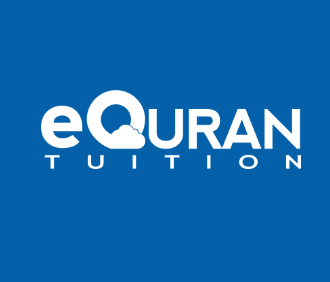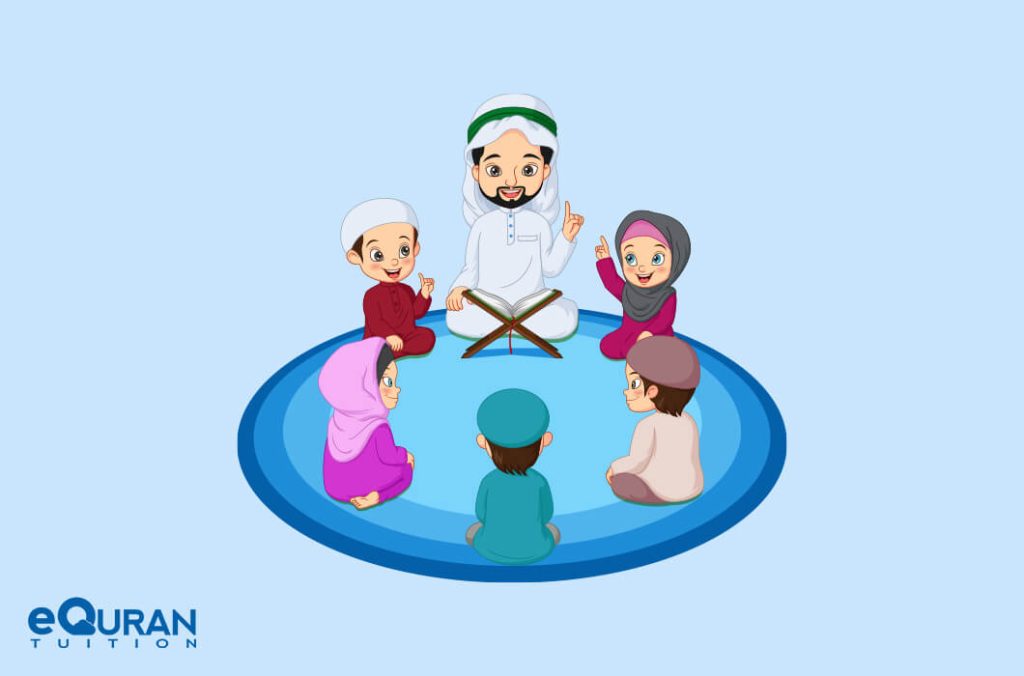
The Quran, often spelled as the Qur’an, is the holy book of Islam and holds a central place in the lives of over 1.9 billion Muslims around the world. It is considered by Muslims to be the literal word of God, revealed to the Prophet Muhammad over a period of 23 years.
While many are familiar with the Quran as a religious text, there are some eye-opening facts about it that may not be widely known. In this blog, we will explore 10 of these fascinating and enlightening facts about the Quran.
Exploring the 10 Facts About the Quran
Delve into the 10 fascinating facts that unveil the Quran’s remarkable depth and significance.
1. Divine Revelation Over 23 Years
One of the most remarkable aspects of the Quran is the way it was revealed. It didn’t descend upon the Prophet Muhammad all at once but was revealed gradually over a span of 23 years. This process began in the year 610 CE when Muhammad received his first revelation at the age of 40 while meditating in the cave of Hira near Mecca.
The angel Gabriel appeared to him and commanded him to read. This initial revelation is now known as the first five verses of Surah Al-Alaq (The Clot). The gradual nature of the Quran’s revelation allowed it to address the specific circumstances and challenges faced by the Muslim community at different times.
It provided guidance on matters of faith, morality, law, and social justice as the need arose. This unique approach ensured that the Quran remained relevant throughout history and continues to be a source of guidance for Muslims today.
2. Linguistic Miracles
The Quran is often described as a linguistic miracle. Its language, style, and eloquence are considered unparalleled in Arabic literature.
The Quran challenges humanity to produce a verse like it, a challenge that remains unmet to this day, despite centuries of efforts by poets and scholars. The Quran’s use of literary devices such as metaphors, similes, and parables adds depth to its messages.
It employs a unique rhythm and rhyme scheme that captivates listeners and readers alike. Many non-Arabic speakers who study the Quran for its literary qualities are astounded by the beauty and precision of its language, even in translation.
3. Scientific Verses and Insights
The Quran contains numerous verses that touch upon scientific phenomena and natural phenomena. While it is not a science textbook, many Muslims and scholars have noted the remarkable alignment between certain Quranic verses and modern scientific discoveries. For example:
- The Quran mentions the development of the human embryo in Surah Al-Mu’minun (The Believers) in a way that remarkably resembles modern embryology.
- Surah Az-Zumar (The Troops) contains verses that allude to the expansion of the universe, a concept that aligns with the Big Bang theory.
- The Quran also discusses topics like the water cycle, the orbits of celestial bodies, and the creation of life from water—all of which align with modern scientific understanding.
These verses have led to extensive discussions and research on the compatibility between science and religion, showcasing the Quran’s potential to inspire curiosity and exploration in both realms.
4. Preservation of Text
One of the most astonishing aspects of the Quran is its preservation. Unlike many ancient religious texts, the Quran has remained unchanged since its revelation. The Quran that Muslims recite today is identical to the one revealed to the Prophet Muhammad more than 14 centuries ago.
This remarkable preservation is attributed to both divine intervention and human diligence. Muslims believe that God promised to protect the Quran from corruption, and throughout history, countless scholars and memorizers (Hafiz) have committed the entire Quran to memory.
Today, millions of Muslims around the world have memorized the Quran, ensuring that even if all printed copies were lost, the Quran would still exist in the hearts and minds of its followers.
5. Mathematical Miracles
Beyond its linguistic beauty, the Quran contains mathematical patterns and miracles that have baffled scholars and mathematicians alike. One such example is the numerical miracle of the number 19, known as the “Miracle of 19.”
This phenomenon revolves around the consistent occurrence of the number 19 throughout the Quran in various contexts, such as the number of verses in certain chapters or the placement of certain words. For instance, the first revelation to the Prophet Muhammad occurred in the 19th word of the 19th verse of the 19th chapter (Surah Al-Alaq).
The word “Allah” also appears 2698 times in the Quran, which is a multiple of 19 (2698 = 19 x 142). These intricate numerical patterns have led some scholars to believe that they serve as a divine sign, reinforcing the Quran’s authenticity and divine origin.
6. Ethical and Moral Guidance
While the Quran is often recognized for its spiritual and religious content, it also provides profound ethical and moral guidance for individuals and societies.
Beyond the obligatory acts of worship and rituals, the Quran addresses various aspects of human behavior, emphasizing virtues such as compassion, justice, humility, and charity.
One of the Quran’s eye-opening facts in this regard is its comprehensive approach to ethics and morality. It not only sets forth moral principles but also provides real-life examples and stories of individuals who embodied these principles.
7. Quranic Predictions
One of the most intriguing aspects of the Quran is its ability to predict future events with astonishing accuracy. While the Quran primarily serves as a spiritual and moral guide, it also contains verses that foretell historical events and phenomena that could not have been known at the time of its revelation.
For example, Surah Ar-Rum (Chapter 30) contains a prophecy about the defeat of the Roman Empire, which was on the brink of collapse when the Quran was revealed. The Quran predicted that the Romans would be victorious again within a few years, and this prophecy came true when the Romans defeated the Persians in 624 CE.
Another striking prediction is found in Surah Al-Rum, which it mentions the expansion of human exploration and travel. It reads: “And He has subjected for you whatever is in the heavens and whatever is on the earth – all from Him. Indeed, in that are signs for a people who give thought” (Quran 45:13).
8. Beyond the Obvious
While the Quran’s scientific accuracy has been widely discussed, there are lesser-known scientific insights in the Quran that continue to amaze researchers. Beyond well-known verses about embryology or the universe’s expansion, the Quran contains subtle references to natural phenomena that were not fully understood at the time of its revelation.
One such example is found in Surah Al-Hadid (Chapter 57), where it mentions iron. The Quran says, “And We sent down iron, wherein is great military might and benefits for the people, and so that Allah may make evident those who support Him and His messengers unseen. Indeed, Allah is Powerful and Exalted in Might” (Quran 57:25).
This verse highlights the importance of iron and its various benefits, including its role in weaponry and tools. The Quran’s recognition of iron’s significance in human civilization, at a time when its importance was not fully appreciated, is a testament to its divine knowledge.
9. Quranic Challenge
The Quran issues a unique challenge to humanity throughout its text. It challenges individuals to produce something similar to its verses or chapters (Surahs) if they doubt its divine origin. This challenge is not merely a rhetorical flourish but a profound test of the Quran’s authenticity and eloquence.
The Quran extends this challenge in Surah Al-Baqarah (Chapter 2), stating, “And if you are in doubt about what We have sent down upon Our Servant [Muhammad], then produce a Surah the like thereof and call upon your witnesses other than Allah, if you should be truthful” (Quran 2:23).
Despite numerous attempts by scholars, poets, and linguists over centuries, no one has been able to replicate the Quran’s unmatched literary excellence and depth of meaning, reinforcing its divine status.
10. Universal Message
One of the most compelling aspects of the Quran is its universal message. While it was revealed in a specific historical and cultural context, the Quran’s teachings transcend time and place, addressing the common concerns and dilemmas faced by humanity. It is not limited to a particular group, ethnicity, or era but is intended for all of humanity.
The Quran explicitly acknowledges the diversity of human societies and their unique customs and traditions, while also emphasizing the common bond of humanity. It invites people of all backgrounds to reflect upon its message and seek spiritual and moral guidance.
This universality is reflected in the Quran’s emphasis on the oneness of God, the importance of justice, and the value of compassion, principles that resonate with people from diverse cultural and religious backgrounds.
Conclusion:
In conclusion, the Quran, as the holy book of Islam, offers a multitude of remarkable facets that extend beyond its religious significance. Its gradual revelation, linguistic beauty, alignment with scientific insights, and predictions of future events all contribute to its mystique.
The Quran’s enduring relevance and profound impact on individuals and societies serve as a testament to its enduring significance in the realm of spirituality, morality, and human understanding.
FAQs:
Q: What is the significance of the number 19 in the Quran?
Some scholars have noted the occurrence of the number 19 at various intervals in the Quran, which has led to the development of the “Quranic miracle of 19” hypothesis. This theory suggests that the Quran’s structure and composition exhibit a mathematical pattern based on the number 19, which is seen by some as a sign of its divine origin.
Q: Are there scientific facts mentioned in the Quran?
The Quran contains verses that some interpret as describing scientific phenomena. For example, the Quran mentions the development of the human embryo, the water cycle, and celestial bodies. These references have sparked debates among scholars and scientists about the Quran’s relationship with science.
Q: What is the concept of abrogation (Naskh) in the Quran?
Abrogation, or “Naskh” in Arabic, is a concept in Islamic jurisprudence where some Quranic verses are considered to have been abrogated or superseded by later revelations. This concept has implications for understanding Islamic law and has generated discussions about the chronological order and context of Quranic verses.
Q: What are the different styles of recitation (Qira’at) of the Quran?
The Quran can be recited in various styles, known as Qira’at, which have been preserved and passed down through oral tradition. The most well-known Qira’at are Hafs and Warsh, and these variations primarily involve differences in pronunciation and sometimes wording. The recitation (Qira’at) demonstrates the flexibility and richness of the Arabic language.
Q: How has the Quran been preserved over centuries without changes?
The Quran is believed by Muslims to have been preserved since its revelation to Prophet Muhammad through oral transmission and later through written compilation. One of the most significant preservation mechanisms is memorization (Hifz) by Muslims. Many Muslims worldwide memorize the entire Quran, ensuring its accurate transmission.

eQuran Tuition is your trusted online institute in the US for expert Quran learning with Tajweed, connecting you with experienced Quran tutors for a meaningful Quranic journey.




